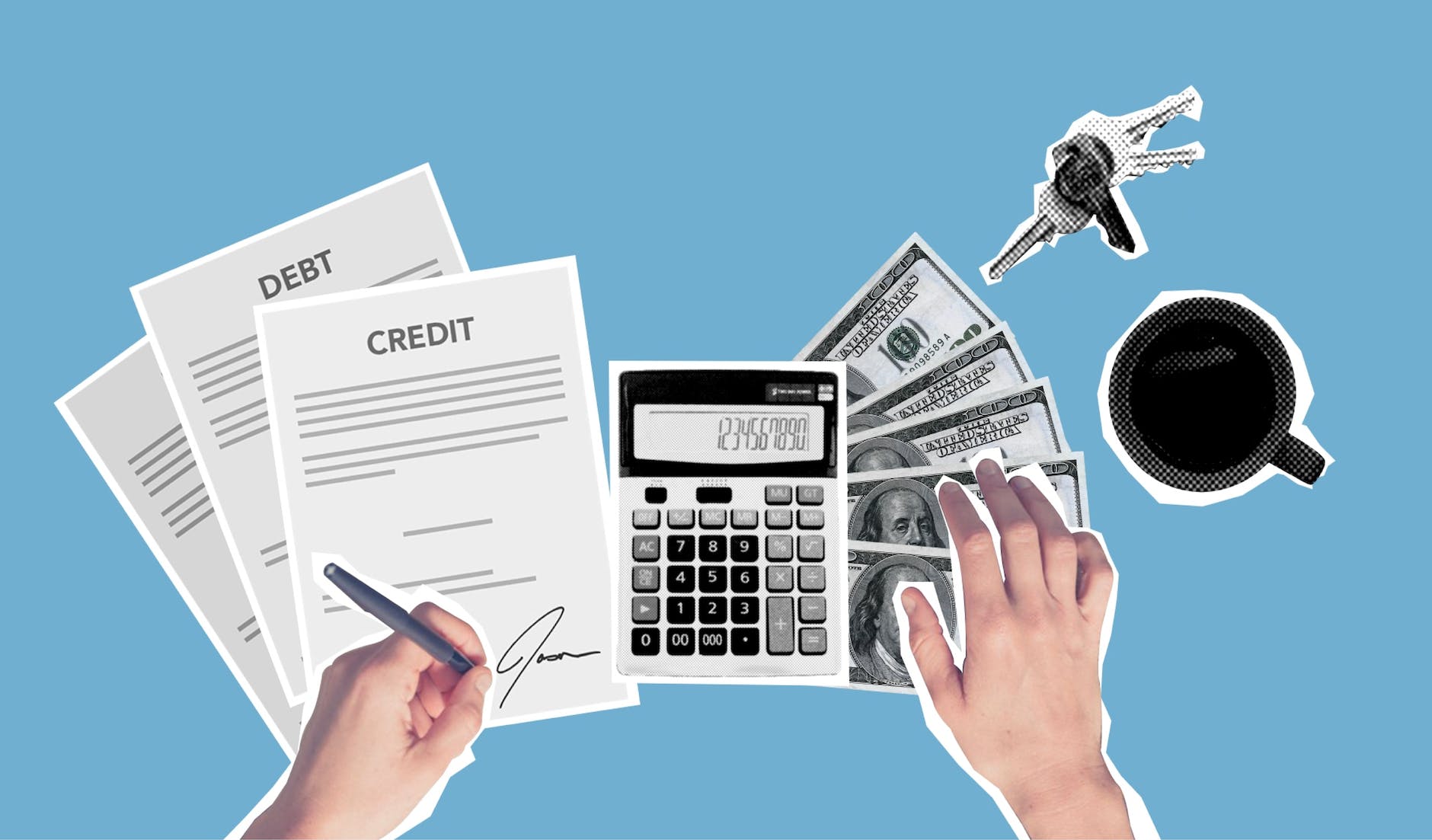The Art Of Budgeting: Regaining Control Over Your Finances
Are you feeling overwhelmed by your finances? Are you struggling to regain control over your budget? Look no further than “The Art Of Budgeting: Regaining Control Over Your Finances”! These informative articles are specifically designed to assist individuals who find themselves in debt. With practical tips, expert advice, and easy-to-follow strategies, you’ll learn how to effectively manage your money and regain control of your financial situation. Let us guide you on the path to financial freedom and help you regain control over your finances.
Understanding Your Current Financial Situation
Assessing Your Income
To regain control over your finances, it is essential to have a clear understanding of your current income. Start by calculating your monthly take-home pay or any additional sources of income you may have. Include salary, bonuses, freelance work, rental income, or any other regular payments you receive. By assessing your income, you will have a better idea of how much money you have available to allocate toward your expenses, debts, and savings.
Calculating Your Expenses
In order to create an effective budget plan, it is crucial to have a clear understanding of your monthly expenses. Start by tracking your expenditures for a few months to identify recurring expenses and any areas where you may be overspending. Categorize your expenses into essential categories, such as housing, utilities, groceries, transportation, and discretionary spending. By calculating your expenses, you will have a comprehensive overview of where your money is going and can identify areas where you can potentially cut back.
Identifying Your Debts
Debt can be a major financial burden and hinder your ability to take control of your finances. Take the time to identify all your debts, including credit card balances, student loans, car loans, and mortgages. Make a list of each debt, the outstanding balance, the interest rate, and the minimum monthly payment. This will help you see the big picture and prioritize your debt repayment strategy.
Evaluating Your Assets
In addition to understanding your income and expenses, evaluating your assets is an important step in regaining control over your finances. Your assets may include savings accounts, investments, real estate, vehicles, or any other valuable possessions. Knowing what you own and the value of your assets can give you a sense of your overall financial position and help you make informed decisions about how to manage your money effectively.
Creating a Realistic Budget Plan
Setting Financial Goals
Setting clear financial goals is a key component of creating a realistic budget plan. Whether it’s paying off debt, saving for a down payment on a house, or building an emergency fund, having specific goals will help guide your financial decisions and provide motivation along the way. Write down your goals and make them measurable, attainable, relevant, and time-bound, also known as SMART goals.
Tracking Your Spending
One of the most effective ways to stick to a budget is by tracking your spending. Keep a record of every purchase you make, whether it’s through a smartphone app, a spreadsheet, or a dedicated budgeting tool. This will allow you to see exactly where your money is going and identify areas where you may be overspending. By tracking your spending, you can make adjustments to your budget and ensure that you are on track to meeting your financial goals.
Differentiating Between Needs and Wants
When creating a budget plan, it’s important to differentiate between needs and wants. Needs are essential expenses that you must pay for, such as housing, utilities, and groceries. Wants, on the other hand, are non-essential expenses that you could live without if necessary, such as dining out or entertainment expenses. By prioritizing your needs and distinguishing them from your wants, you can allocate your funds more wisely and avoid unnecessary financial strain.
Allocating Funds for Essentials
Essential expenses, such as housing, utilities, and groceries, should be given priority in your budget plan. These are the expenses that are necessary for your daily living and should be accounted for before allocating funds to other categories. By making sure your essentials are covered, you can ensure that you have a solid foundation for your financial stability.
Prioritizing Debt Repayment
If you have debts, it’s crucial to prioritize their repayment in your budget plan. By allocating a specific amount towards debt repayment each month, you will make consistent progress toward becoming debt-free. Consider using strategies such as the debt avalanche method (paying off high-interest debts first) or the debt snowball method (paying off small debts first) to accelerate your progress. Prioritizing debt repayment will not only improve your financial situation but also provide you with a sense of accomplishment and relief as you see your debts decrease over time.

Implementing Effective Budgeting Strategies
Setting Up an Emergency Fund
An emergency fund is a crucial component of any effective budget plan. It provides a financial safety net for unexpected expenses or income disruptions. Aim to save at least three to six months’ worth of living expenses in your emergency fund. Start by setting aside a small percentage of your income each month and gradually build up your fund. Having an emergency fund will give you peace of mind and protect you from relying on credit cards or loans when unexpected expenses arise.
Automating Savings
Automating your savings is a simple yet powerful strategy to help you stay on track with your budgeting goals. Set up automatic transfers from your checking account to your savings account on a regular basis. This way, you won’t have to rely on willpower alone to save money. By automating your savings, you ensure that your savings grow consistently over time, contributing to your long-term financial stability.
Utilizing Cash Envelopes
Using cash envelopes is a tangible method that can help you better manage your spending. Allocate specific amounts of cash for different categories of your budget, such as groceries or entertainment. Place the designated amount of cash in individual envelopes, labeling them accordingly. This technique allows you to physically see how much money you have left for each category, making it easier to stick to your budget and avoid overspending.
Using Budgeting Apps and Tools
In this digital age, there are numerous budgeting apps and tools available to help you manage your finances more effectively. These apps can track your spending, automate savings, set financial goals, and provide insights into your overall financial situation. Research and choose a budgeting app or tool that aligns with your needs and preferences. By utilizing technology to assist you in budgeting, you can streamline your financial management process and have a clearer picture of your financial health.
Reviewing and Adjusting Your Budget
A budget is not a set-it-and-forget-it document. It’s important to regularly review and adjust your budget as needed. Life circumstances, expenses, and income can change over time, and your budget should reflect these changes. Make it a habit to review your budget monthly or quarterly. Assess your progress towards your financial goals and make adjustments to your spending categories or savings allocations as necessary. A flexible and adaptable budget will ensure that you stay on track and maintain control over your finances.
Reducing Expenses and Maximizing Income
Minimizing Discretionary Spending
One way to regain control over your finances is by minimizing discretionary spending. Discretionary expenses include non-essential items and activities such as dining out, entertainment, and shopping for non-essential items. Take a close look at your discretionary spending and identify areas where you can cut back. Consider finding free or low-cost alternatives to expensive activities and limit impulse purchases. By reducing discretionary spending, you can free up more funds to allocate toward your financial goals.
Lowering Utility Bills
Utility bills can often be a significant expense in your budget. Look for ways to lower your utility bills by being mindful of your consumption. Turn off lights when not in use, unplug electronics, adjust your thermostat to a more energy-efficient temperature, and consider using energy-saving appliances or light bulbs. Additionally, explore options for switching to cheaper providers or negotiating lower rates for your utilities. By taking steps to lower your utility bills, you can decrease your monthly expenses and have more money to allocate toward your financial priorities.
Exploring Ways to Cut Grocery Expenses
Groceries are another major expense that can put a strain on your budget. Look for ways to cut your grocery expenses without sacrificing nutrition or quality. Plan your meals in advance, create a shopping list, and stick to it. Take advantage of sales, discounts, and coupons. Consider buying in bulk non-perishable items and buying seasonal produce. By implementing these strategies, you can significantly reduce your grocery expenses and stretch your food budget further.
Earning Extra Income
Boosting your income can significantly impact your financial situation and help you achieve your goals faster. Consider ways to earn extra income, such as taking on a side gig, freelancing, or monetizing a hobby or skill. Explore opportunities to leverage your expertise or interests to generate additional revenue. Even a small amount of extra income can make a difference in paying off debt, saving for emergencies, or investing for your future.
Utilizing Coupons and Discounts
Coupons and discounts can be powerful tools for reducing expenses and maximizing your purchasing power. Look for coupons in newspapers, online coupon websites, or store apps. Take advantage of sales and discounts on products and services you regularly use. Consider signing up for loyalty programs and take advantage of the benefits they offer. By being proactive in seeking out coupons and discounts, you can save a significant amount of money over time.

Managing Debt and Financial Obligations
Creating a Debt Repayment Plan
Debt repayment should be a priority in regaining control over your finances. Start by creating a debt repayment plan that outlines how you will tackle each debt. Consider using strategies such as the debt avalanche method, where you concentrate on paying off debts with the highest interest rates first, or the debt snowball method, where you focus on paying off your smallest debts first for quick wins. Allocate a specific amount of money each month towards debt repayment and stick to your plan. As you pay off each debt, roll over the payment amount to the next debt, accelerating your progress toward becoming debt-free.
Negotiating Lower Interest Rates
High-interest rates can significantly increase the amount you owe and prolong your debt repayment journey. Consider reaching out to your creditors to negotiate lower interest rates. Explain your financial situation and the efforts you are making to repay your debts. Creditors may be willing to work with you to lower interest rates, especially if you have demonstrated financial responsibility. Lower interest rates can help you pay off your debts faster and save money in the long run.
Consolidating Loans
If you have multiple loans with different interest rates and repayment terms, consolidating your loans may be a beneficial option. Consolidating your loans involves combining all your debts into one single loan with a lower interest rate and a more manageable repayment plan. This can simplify your debt repayment process and potentially save you money on interest. Research loan consolidation options and consider seeking advice from a financial professional to determine if consolidation is the right choice for you.
Avoiding Additional Debt
To regain control over your finances, it’s important to avoid accumulating additional debt. Evaluate your spending habits and identify any triggers or impulsive behaviors that may lead to unnecessary debt. Consider adopting a cash-only policy or limiting your credit card usage. Prioritize your needs over your wants and avoid making purchases that you cannot afford. By consciously avoiding additional debt, you will make significant progress toward your financial goals.
Seeking Professional Debt Management Help
If you find yourself overwhelmed by debt or struggling to create an effective debt repayment plan, seeking professional help may be beneficial. Debt management agencies or credit counseling services can provide guidance on debt consolidation, negotiating with creditors, and developing a personalized debt repayment plan. These professionals have expertise in debt management and can assist you in regaining control over your financial situation. Remember to research and choose a reputable and trustworthy organization to ensure that you receive the best possible assistance.
Saving for the Future
Investing for Retirement
Saving for retirement is an essential component of regaining control over your finances and planning for your future. Start by exploring retirement savings options, such as individual retirement accounts (IRAs) or employer-sponsored retirement plans like 401(k)s. Contribute regularly to these accounts and take advantage of any matching contributions from your employer. Consider seeking the advice of a financial advisor to help you make informed decisions about your retirement investments. By starting early and consistently saving for retirement, you can build a solid foundation for your financial future.
Starting an Education Fund
If you have children or planning to pursue higher education yourself, it’s important to start saving for education expenses. Look into education savings accounts, such as 529 plans, which offer tax advantages for education-related expenses. Start contributing to these accounts as early as possible to allow your funds to grow over time. By budgeting for education expenses, you can alleviate future financial burdens and provide opportunities for yourself or your loved ones.
Planning for Major Expenses
Major expenses, such as buying a house, purchasing a car, or funding a wedding, require careful planning. Anticipate these expenses in your budget and start saving for them well in advance. Consider setting up separate savings accounts specifically designated for these goals. Divide the total cost of the expense by the number of months until you anticipate making the purchase and save that amount each month. By planning ahead, you can avoid accumulating additional debt and reach your financial goals more smoothly.
Building an Emergency Fund
As mentioned earlier, an emergency fund is a critical component of regaining control over your finances. Aim to save three to six months’ worth of living expenses to protect yourself in case of unexpected events, such as a job loss or a medical emergency. Make it a priority to regularly contribute to your emergency fund, even if it’s a small amount at first. The peace of mind that comes with knowing you have a financial safety net is invaluable and will help you navigate through challenging times more confidently.
Long-term Financial Planning
Alongside saving for specific goals, it’s important to engage in long-term financial planning. This entails evaluating your financial goals for the distant future, such as retirement or starting a business. Consider seeking the advice of a financial advisor who can guide you in making strategic investments and developing a comprehensive financial plan. By engaging in long-term financial planning, you can have clarity and direction for your overall financial journey.

Practicing Mindfulness and Discipline
Adopting a Positive Money Mindset
A positive money mindset is foundational to regaining control over your finances. It involves shifting your mindset from scarcity to abundance and cultivating a positive relationship with money. Focus on gratitude for what you have and celebrate your financial achievements, no matter how small. Embrace the belief that you have the power to take control of your finances and achieve your goals. By adopting a positive money mindset, you set yourself up for success and approach financial decisions with confidence.
Avoiding Impulsive Purchases
Impulse purchases can quickly derail your budget and hinder your progress toward your financial goals. Practice mindfulness when it comes to your spending habits and avoid making impulsive purchases. Before making a purchase, consider whether it aligns with your financial goals and whether it is a need or a want. Implement a waiting period before making non-essential purchases to avoid impulse buying. By taking a step back and considering the impact of each purchase, you can make more intentional and responsible spending decisions.
Overcoming Financial Challenges
It’s natural to face financial challenges along the way when regaining control over your finances. These challenges may include unexpected expenses, job loss, or difficulty sticking to your budget. When faced with financial challenges, take a proactive approach. Look for solutions and alternative strategies, such as seeking assistance from support networks, exploring additional income opportunities, or reaching out to professionals for advice. Remember to stay optimistic and persevere through challenges, knowing that each obstacle presents an opportunity for growth and learning.
Staying Motivated
Staying motivated is essential when embarking on a financial journey. Celebrate small victories along the way, such as paying off a debt or reaching a savings milestone. Visualize your financial goals and remind yourself of the reasons why you want to regain control over your finances. Consider creating a vision board or setting reminders to keep yourself motivated. Surround yourself with positive influences, such as supportive friends or mentors, who can help you stay on track and provide encouragement.
Dealing with Peer Pressure
Peer pressure can sometimes tempt us to spend beyond our means or prioritize immediate gratification over long-term financial stability. It’s important to develop strategies for dealing with peer pressure in order to stay on track with your financial goals. Communicate your financial priorities and goals with friends and family, so they understand your intentions. Suggest alternative activities or ways to socialize that align with your budget. Remember, it’s okay to say no and prioritize your financial well-being. Surround yourself with like-minded individuals who support your financial journey.
Seeking Financial Education and Support
Taking Advantage of Free Resources
There are numerous free resources available to help you educate yourself about personal finance and regain control over your finances. Take advantage of websites, blogs, podcasts, and online forums dedicated to providing financial education. Subscribe to newsletters from reputable financial websites to stay updated on the latest financial trends and tips. By immersing yourself in financial knowledge, you can equip yourself with the tools and strategies necessary to make informed decisions about your money.
Attending Financial Literacy Programs
Financial literacy programs offer structured courses and workshops to help individuals improve their financial knowledge and skills. Research local community centers, libraries, or nonprofits that offer financial literacy programs. These programs often cover topics such as budgeting, debt management, investing, and financial planning. By attending financial literacy programs, you can gain valuable insights and interact with experts in the field who can help guide you in regaining control over your finances.
Joining Support Groups
Joining a support group can provide a valuable source of encouragement and accountability on your financial journey. Look for local or online support groups specifically focused on personal finance and debt management. These groups can provide a safe space to share experiences, receive advice, and gain support from others who are going through similar financial challenges. By connecting with like-minded individuals, you can find inspiration and motivation to stay on track with your financial goals.
Consulting with Financial Advisors
Financial advisors are professionals who specialize in providing personalized financial advice and guidance. If you feel overwhelmed or uncertain about your financial situation, consider consulting with a financial advisor. They can provide insights tailored to your specific circumstances, help you develop a comprehensive financial plan, and assist you in making informed financial decisions. Research and choose a reputable financial advisor who aligns with your goals and values.
Peer-to-Peer Financial Coaching
Peer-to-peer financial coaching is another option for seeking support and guidance. This involves working with individuals who have successfully managed their own financial journeys and are willing to share their knowledge and experiences. Peer-to-peer financial coaching can provide a unique perspective and relatable insights as you navigate your own financial challenges. Look for mentors or coaches through online communities, social media groups, or personal connections who have achieved financial success and are willing to guide and support you.
Embracing a Sustainable Lifestyle
Reducing Waste and Consumption
Living a sustainable lifestyle not only benefits the environment but also has financial advantages. Reducing waste and consumption can help you save money by avoiding unnecessary purchases and minimizing the resources you consume. Practice conscious consumption by buying only what you need, avoiding single-use items, and recycling or repurposing items instead of buying new ones. By embracing a sustainable lifestyle, you not only contribute to a healthier environment but also increase your financial well-being.
Choosing Environmentally-friendly Products
When purchasing products, consider choosing environmentally friendly options. These products are often designed to be more durable, energy-efficient, and sustainable in the long term. While the upfront cost may be slightly higher, choosing environmentally-friendly products can save you money over time due to lower energy usage or reduced need for frequent replacements. Look for energy-efficient appliances, LED light bulbs, eco-friendly cleaning products, and other sustainable alternatives to reduce your environmental impact and save money on your utility bills.
Saving Money through Energy Efficiency
Improving energy efficiency in your home is another way to reduce expenses and live more sustainably. Implement energy-saving habits, such as turning off lights and appliances when not in use, using natural light whenever possible, and properly insulating your home. Upgrade your home to energy-efficient appliances, install low-flow showerheads and toilets, and consider investing in solar panels or other renewable energy sources. By saving money on your utility bills through energy efficiency, you can allocate more funds toward your financial goals.
Sustainable Transportation Choices
Transportation expenses can add up quickly, impacting your budget and the environment. Make sustainable transportation choices whenever possible. Consider carpooling, using public transportation, biking, or walking for short distances. If you need a vehicle, choose a fuel-efficient or electric vehicle. By reducing your reliance on fossil fuels and opting for greener transportation alternatives, you can save money on fuel costs and contribute to a cleaner and healthier environment.
Regulating Water Consumption
Water is a precious resource, and reducing water consumption can lead to financial savings and environmental conservation. Implement water-saving practices in your daily routines, such as taking shorter showers, fixing leaks promptly, and using water-efficient appliances. Consider collecting rainwater for gardening or landscaping purposes. By regulating your water consumption, you can lower your water bills and conserve this valuable resource for future generations.
Celebrating Financial Milestones
Rewarding Yourself for Financial Achievements
Regaining control over your finances requires discipline and commitment. Acknowledge and reward yourself for your financial achievements along the way. Celebrate milestones, such as paying off a significant amount of debt, reaching a savings goal, or achieving a positive net worth. Treat yourself to a small indulgence or spend quality time doing something you enjoy without going overboard. By rewarding yourself for your financial achievements, you reinforce positive behaviors and motivate yourself to continue making progress.
Tracking Progress and Achievements
Keep track of your financial progress and achievements to stay motivated and maintain a sense of accomplishment. Monitor your debt repayment plan, regularly update your savings balance, and track your progress toward your financial goals. Utilize spreadsheets, financial apps, or journaling to keep a record of your achievements. Reflecting on your progress can provide a sense of satisfaction and encourage you to keep striving for financial success.
Sharing Success Stories
Sharing your financial success stories with others can inspire and motivate others to take control of their own finances. Consider sharing your achievements with friends, family, or online communities. Write blog posts, and social media updates, or simply have conversations about your experiences and the strategies that have worked for you. By sharing your success stories, you can positively impact others’ lives and contribute to a culture of financial empowerment.

Inspiring Others to Take Control of Their Finances
As you experience personal financial growth, you can inspire others to take control of their own finances. Lead by example and share your knowledge and insights with others who may benefit from your experience. Offer support, encouragement, and guidance to those who express interest in improving their financial well-being. By inspiring others to take control of their finances, you make a positive impact and contribute to a collective movement toward financial empowerment.
Planning for Future Goals
As you celebrate financial milestones, it’s important to continue planning for future goals. Review your financial plan, reassess your goals, and set new ones whenever necessary. Whether it’s saving for a dream vacation, starting a business, or retiring comfortably, having future goals will keep your financial journey on track and maintain your motivation. Regularly evaluate your progress and make adjustments to your plan as needed. By planning for future goals, you ensure a continuous cycle of financial growth and success.
In conclusion, regaining control over your finances is a journey that requires intentional effort, discipline, and commitment. By understanding your current financial situation, creating a realistic budget plan, implementing effective budgeting strategies, reducing expenses, managing debt, saving for the future, practicing mindfulness and discipline, seeking financial education and support, embracing a sustainable lifestyle, and celebrating financial milestones, you can achieve financial stability and take control of your financial future. Remember, this is a gradual process, and each step you take toward financial empowerment is a step closer to regaining control over your finances. Embrace the journey and stay focused on your goals, and soon enough, you will experience the joy and freedom that comes with financial well-being.
© 2015-2023 by burdenofdebt.com, a LIVenture. All rights reserved. No part of this document may be reproduced or transmitted in any form or by any means, electronic, mechanical, photocopying, recording, or otherwise, without prior written permission of LiVentures LLC.







